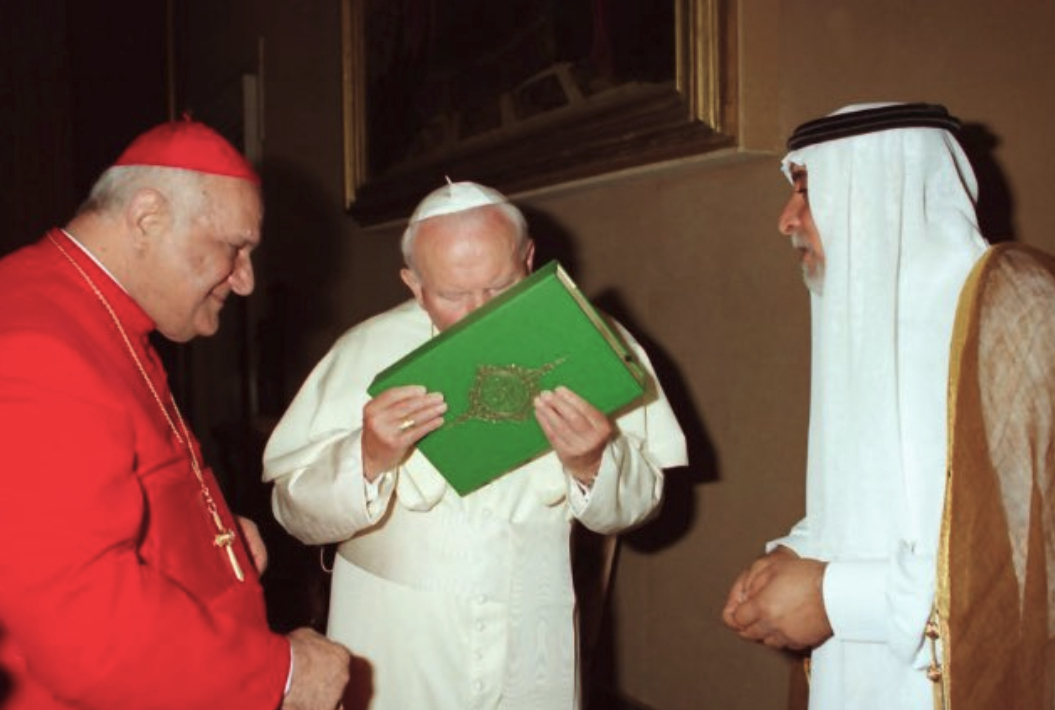Goal of missionary work to win hearts, not minds, in the face of division
I often wonder why God chose to enter human history more than two thousand years ago in Bethlehem. Why not in our day?
Imagine, how Jesus Christ would conduct His ministry in a landscape where the Internet and social media are major gathering points for people to interact and discuss issues. Picture Him having a YouTube channel with a global audience to deliver His “Sermon on the Mount”. Visualise St Peter and the apostles managing Christ’s social media accounts as His keyboard warriors.
They would have gotten the Pharisees hotter under the collar because of His global following. It will drive them mad to shout even louder, “Cancel Him, cancel Him!” But will Christ and His Apostles bow down to their persecutors’ demands? Nope. For sure, He will engage the Pharisees and uncover their hypocrisy on Facebook, Twitter, Instagram and Whatsapp!
We’d never know in our lifetime why He came to us on that ancient Christmas Day morning instead of now. But we, His disciples, live in this moment of history – the era of instant messaging.
What prompts me to write this column is the increasing incidences I’ve witnessed recently of frictions between people using social media to interact. It has left a trail of broken family ties and long-standing friendships.
Read: Pope Francis warns of toxicity in social media
The fight to bring Christ’s Light into the growing darkness
Communication technology has been advancing to the extent that it has made the world a lot smaller. Chatting with friends, family and even strangers halfway across the world for hours on end is almost cost-free, something that was unimaginable less that 30 years ago.
For the Church, the Internet provides an unprecedented tool to evangelise and catechise. Since the birth of the Internet in the 1990s, Popes St John Paul II, Benedict XVI and Francis have called on the Church to be ever present and visible on this online universe.
There is now a large presence of bishops, priests, deacons, religious men and women, and lay who are writing for Catholic news outlets, and their personal or group blogs and social media pages. Many are informative and live up to the Church’s mission of evangelising and catechising.
But just as many are misleading Catholics and we would do well to avoid them for our spiritual health. They have become channels of division and anger, especially against the Pope, his predecessors and their teaching Magisterium. They have and are pushing faithful Catholics on a path that is away from the Light.

To be sure, Pope Francis extols the Internet’s extraordinary possibilities in his 2019 World Communications Day message. He says the Web is “a source of knowledge and relationships that were once unthinkable,” adding that “It is an opportunity to promote encounter with others.”
But there are also major obstacles hampering the Internet from maximising its positive potential. Social media, for one, can be anti-social, anti-human and anti-Christian when they are used to increase differences, fuel suspicion, spread lies and vent prejudice.
It is too often based on opposition to the other, the person outside the group: we define ourselves starting with what divides us rather than with what unites us, giving rise to suspicion and to the venting of every kind of prejudice (ethnic, sexual, religious and other).
This tendency encourages groups that exclude diversity, that even in the digital environment nourish unbridled individualism which sometimes ends up fomenting spirals of hatred. In this way, what ought to be a window on the world becomes a showcase for exhibiting personal narcissism.
Pope Francis
A clutch of clergies, several who are popular and command a huge following in either their personal blogs or social media, are among those guilty of fuelling this division in the Church. They affirm and feed what their followers crave.
They are deeply critical of not only Pope Francis but also of John Paul II during his pontificate, especially when he initiated the historic 1986 inter-faith summit in Assisi and kissed the Koran in 1999 when he received Muslim dignitaries.
While a Pope’s private opinions and actions can be questioned, they have regularly gone beyond this. Without any serious attempt to verify facts, the Holy Father’s critics, for example, often misquote and misinterpret what the current Pope says. Every opportunity is also taken to vilify him to the point of demanding that he resigns.
The pen, as the adage goes, is mightier than the sword. Or the keyboard for that matter. As Christ warns, “what defiles us is what comes from the heart” (Matt 15:18). The apostle James reiterates this point that “the tongue is a fire, a world of unrighteousness. The tongue is set among our members, staining the whole body, setting on fire the entire course of life, and set on fire by hell” (James 3:6).
Pride and prejudice
But social media discussion groups pose a greater danger to any idea of unity. They have followers that range in numbers from their tens and hundreds of thousands to millions. Catholic Facebook groups have not been spared.
The problem here is that they are populated with people with impressive learning backgrounds who yield power to sway opinions. They have influence but there are those who misuse their talents that unwittingly result in pitting Catholics against the Church and Her Shepherds.

Their most common, and deadly, sin: Pride overflowing with big egos!
Often, the culprit of this temptation is the instant response feature of social media. In their desire to hammer the people they engage with, they post replies that demean those who oppose their views. Stepping back and letting some time to lapse are always better. If not, chances are high, interactions will end in destructive put-downs. Charity is always the victim.
This is precisely the point Pope Francis is making because social media is a double-edged sword that can either help people grow in their faith or destroy souls. What is the solution the Holy Father proposes? He first asks, “can we find our true communitarian identity, aware of the responsibility we have towards one another in the online network as well?”
A possible answer can be drawn from a third metaphor: that of the body and the members, which Saint Paul uses to describe the reciprocal relationship among people, based on the organism that unites them. “Therefore, putting away falsehood, speak the truth, each to his neighbour, for we are members one of another” (Eph 4:25).
Being members one of another is the profound motivation with which the Apostle invites us to put away falsehood and speak the truth: the duty to guard the truth springs from the need not to belie the mutual relationship of communion. Truth is revealed in communion. Lies, on the other hand, are a selfish refusal to recognize that we are members of one body; they are a refusal to give ourselves to others, thus losing the only way to find ourselves.”
Pope Francis
Truth and, I might add, humility are what we need to engage others on social media. Without a doubt, I’ve been guilty of transgressing this wisdom many times.
We need to remember that in evangelising and catechising, missionary work is about planting seeds on fertile ground. And where can we find this fertile ground? It comes from the heart that loves our neighbour to quench their thirst for God’s Truth. It certainly does not flow from one that is conceited.
Main image: Pexels, Soumil Kumar
